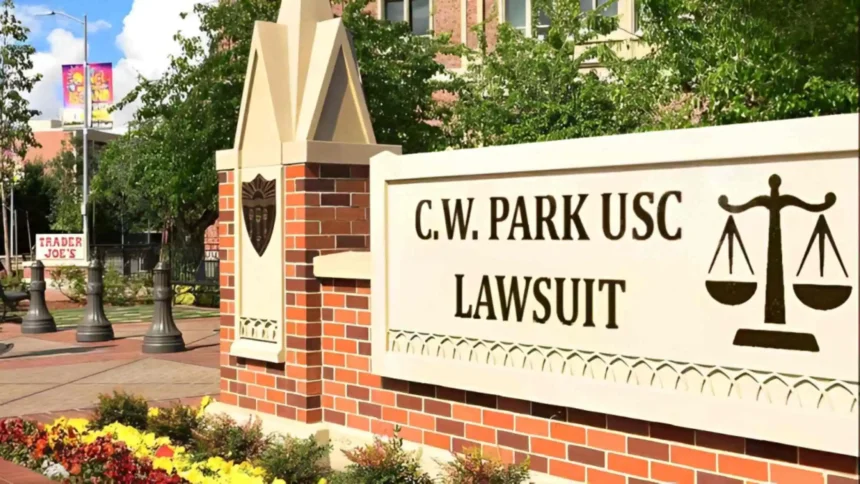The C.W. Park USC lawsuit is focused on severe accusations of sexual assault, harassment, and discrimination aimed at a tenured professor in University of Southern California’s Marshall School of Business.
This legal case was initiated by Yi Youn Kim who used to be Park’s student assistant; she claims that the 76 years old professor sexually assaulted her more than once as well as harassed her from the year 2017 until 2019.
The C.W. park usc lawsuit also made allegations about three other young women who are of Korean descent. They claimed they had experiences that mirror those of the main plaintiff, with Park touching them without consent, hugging and groping them as well as making inappropriate sexual comments.
Background
C.W. Park, a professor at the University of Southern California’s Marshall School of Business, had an impressive career where he made significant contributions to marketing and understanding consumer behavior.
But in early 2023, his name became linked with severe accusations about misconduct. The first claims were about plagiarism, manipulation of data and not giving proper credits to Park’s research work.
Various people and groups accused Park of these wrongdoings. This raised a serious doubt on the honesty in academic offerings from this professor which resulted in a lawsuit against him/her.
Accusations by Former Student Assistant Yi Youn Kim
Yi Youn Kim, a former student assistant at USC’s Marshall School of Business, filed a lawsuit alleging that tenured professor C.W. Park sexually attacked and harassed her many times between 2017 and 2019. Kim claims that three months into her job, in the spring of 2017, Park made nonconsensual sexual advances after asking her to close the door to his office.
The C.W. park usc lawsuit claims that Park sexually abused and harassed Kim four more times during her employment: twice in the fall of 2017, once in the fall of 2018, and once again on April 24, 2019. Kim’s counsel argued that Park, who is Korean, spoke nearly completely in Korean to Kim during her employment, aware of the cultural challenges she would encounter in attempting to halt or expose his alleged conduct as an older Korean man.
Allegations from Three Other Korean Student Assistants
The C.W. Park USC lawsuit also claimed that three other young women of Korean origin had reported similar incidents of non-consensual touching, hugging, and groping by Park, as well as inappropriate sexual comments. These claims date back to 2011, revealing Park’s long-standing habit of misbehavior against female Korean student assistants. The lawsuit accused Park of purposely exploiting cultural dynamics and power imbalances, knowing how difficult it would be for these women to expose his conduct as an older Korean male in a position of authority.
USC’s Alleged Complicity
The C.W. Park USC lawsuit also accused the university of discrimination, claiming that USC was aware of Park’s wrongdoing with female Korean student assistants but did not take appropriate action. According to the lawsuit, Park, who is Korean, purposely targeted these young ladies, taking advantage of cultural dynamics and power imbalances to engage in non consensual touching, embracing, and groping, as well as making improper sexual comments. Despite being aware of Park’s alleged pattern of behavior, the lawsuit claimed that USC failed to effectively investigate the allegations or hold the professor accountable, allowing the misbehavior to continue for an extended period of time.
Park’s Denials and USC’s Defense
C.W. Park fiercely refuted all charges made in the lawsuit. The professor stated that the claims were untrue and that he had not committed the alleged misbehavior. USC, on the other side, defended its actions, claiming that the charges against Park were thoroughly investigated. The university stated that it was dedicated to creating a safe and courteous environment for all members of the campus community. USC also stated that it would enhance its hiring and administrative procedures to prevent such instances from occurring in the future.
The Impact on the USC Community
The C.W. Park USC lawsuit has provoked fury and disillusionment among students, faculty, and alumni at the university. Many people have voiced unhappiness with USC’s handling of the charges, calling for greater responsibility and openness from the school. The college community has urged that the institution take firmer measures to address the allegations against Park and prevent similar incidents of misbehavior in the future. The case has underlined the importance of USC prioritizing its students’ safety and well-being, as well as cultivating a culture of respect and integrity on campus.
Strengthening Title IX and Establishing a Task Force
In response to the C.W. Park USC lawsuit and rising pressure from the campus community, the university has strengthened its Title IX regulations and processes. USC has named a new Title IX coordinator to lead the university’s efforts to resolve sexual misconduct complaints. Furthermore, the university formed a task force to assess and improve its handling of such incidents. This task group will ensure that the university’s policies and processes are successful in preventing and responding to cases of sexual misconduct.
The Ongoing Legal Battle
The C.W. Park USC lawsuit is still underway, with both Park and USC presenting their arguments and evidence in court. The judicial proceedings have been complicated and difficult, since the case delves into the delicate balance of academic freedom and institutional accountability. Park says that USC violated his rights and created a hostile work environment, while the university disputes all charges and claims to have operated within the scope of the law and its regulations.
The decision of the action will have far-reaching consequences for the limits of academic expression and the extent to which universities can manage faculty behavior without encroaching on fundamental liberties.
Academic Freedom in the Crosshairs
The C.W. Park USC lawsuit has raised serious concerns about the limitations of academic discourse and faculty behavior. The issue has raised debate about how far institutions might go to restrict their academics’ behavior without violating academic freedom ideals. Park’s defense has focused on the idea that the allegations against him violate his rights and the freedom of expression that is essential in the academic setting.
Institutional Accountability and Transparency
The C.W. park usc lawsuit has raised concerns about the secrecy surrounding disciplinary proceedings at colleges. The case has fueled calls for increased transparency in university governance, as the campus community has expressed dissatisfaction with the apparent lack of accountability and opaque treatment of the claims against Park. Critics claim that the ambiguity surrounding many disciplinary procedures impedes the pursuit of justice and undermines trust among teachers, staff, and administrators.
The C.W. park usc lawsuit has brought these difficulties to light, leading calls for universities to be more transparent in their decision-making and to have clear, equitable rules for dealing with misconduct complaints against faculty members.
The C.W. Park USC lawsuit has been a watershed moment for the university, with far-reaching consequences for its reputation and future. The explosive allegations of sexual assault, harassment, and discrimination against a respected professor have shook the university community, eliciting indignation and calls for greater responsibility and openness from USC.


Leave a Reply